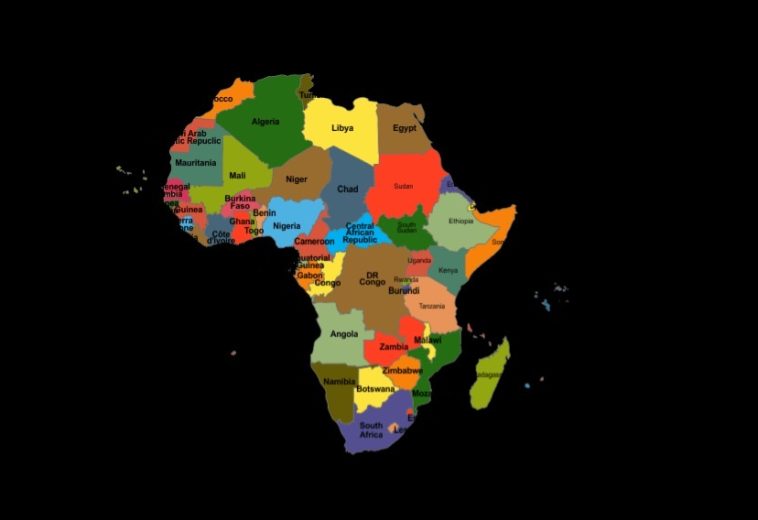The field of healthcare in Africa is currently witnessing tremendous growth, with data analytics and scientific advancements offering previously unheard-of possibilities for sickness prevention, diagnosis, and treatment. According to a survey by the healthcare consulting firm Salient Advisory, South Africa leads the region in health technology innovation. It is maybe not surprising that innovators are going where the money is in an industry where funding is still hard to come by, given that the nation also draws the most venture capital in the area. A 2023 Global Healthcare Index reveals that South Africa has the best healthcare system in Africa, coming in at number 50 out of 89 nations.
The use of electronic health records is transforming the way doctors access and interpret data. These will be the initial steps towards advancing machine learning and predictive medicine. The number of telehealth visits increased dramatically during the epidemic as individuals avoided social situations. Patients who previously couldn’t be contacted may now be reached thanks to the growing prevalence of telehealth consultants. Provided they have access to the internet and a reliable communication infrastructure. In this industry, South Africa is a leader, having made great strides towards granting access to remote healthcare. An increasing number of individuals are using wearable devices to track sleep patterns, blood pressure, heart rate, and glucose monitoring, in addition to using them for exercise.
However, while the South African Constitution guarantees the right to healthcare for all, approximately 85% of the country’s 62 million people rely on an ailing public healthcare sector characterised by a shortage of doctors, leading to delayed or insufficient treatment. The most economically disadvantaged individuals in the country can access free treatment at public clinics and hospitals. Unfortunately, these facilities frequently suffer from malfunctioning equipment and shortages of essential supplies, including medicine and beds. Poor working conditions were among the reasons cited by doctors for leaving the public sector.
With an estimated 8 million people infected with HIV, South Africa bears the largest HIV burden. There are about 7.5 million confirmed cases, of whom less than six million are receiving treatment. An article in the International Journal of Tuberculosis and Lung Disease reports that tuberculosis (TB) is another contagious illness that wreaks havoc on the South African healthcare system; just around 200,000 people receive a diagnosis each year, despite an estimated 360,000 cases.
Malaria is a seasonal disease that is mostly located in the country’s north, yet it still poses a threat to the majority of the population. Other infectious illnesses that South Africa has lately had outbreaks of include cholera and measles. The South African measles outbreak update 2023 from the National Institute for Communicable Diseases states that since October 2022, there have been up to 970 cases of measles recorded. And since February 2023, there have been 10 confirmed cases of cholera.
Public healthcare in South Africa is wide and thorough. It operates by paying for up to 40% of medical expenses. Although free healthcare is not currently provided in South Africa, this might change by 2023 when the National Health Insurance (NHI) is put into effect. In 2007, the governing party committed to implementing universal national health insurance, but progress was hindered by the need to finalize funding and operational details. Recently, parliament passed legislation to enable the programme, slated for a phased rollout over several years.
However, scepticism exists regarding its ability to address the nation’s healthcare challenges. In May 2023, President Cyril Ramaphosa revealed a few health goals during the 2nd Presidential Health Summit held in Johannesburg. According to President Ramaphosa, the epidemic ruined the plan since some initiatives had to be shelved as the nation fought for survival. He continued by saying that the nation’s objective of putting National Health Insurance (NHI) into place depended on the implementation of the Presidential Health Compact’s tenets. With the help of the National Health Insurance (NHI) funding scheme, South Africans would be able to obtain high-quality medical treatment regardless of their financial situation.
“With the pandemic now in abeyance, it is a case of playing catch-up for many countries, including ours. Even though countries like South Africa were particularly negatively affected by COVID-19, our health systems have proven remarkably resilient. We aim to reduce health disparities between different population groups and regions and to protect individuals and families from the financial burden of healthcare expenses. Such a healthcare system should be adequately staffed with well-trained and motivated healthcare professionals supported by effective management and leadership.”
South Africa’s public health sector is advancing innovative solutions aimed at overcoming longstanding challenges. From embracing digital technologies to implementing community-centric programmes, these innovations are laying the foundation for a more inclusive, accessible, and efficient healthcare system. As the nation continues to invest in these groundbreaking initiatives, there is hope that the health and well-being of its population will witness significant improvements in the years to come.


